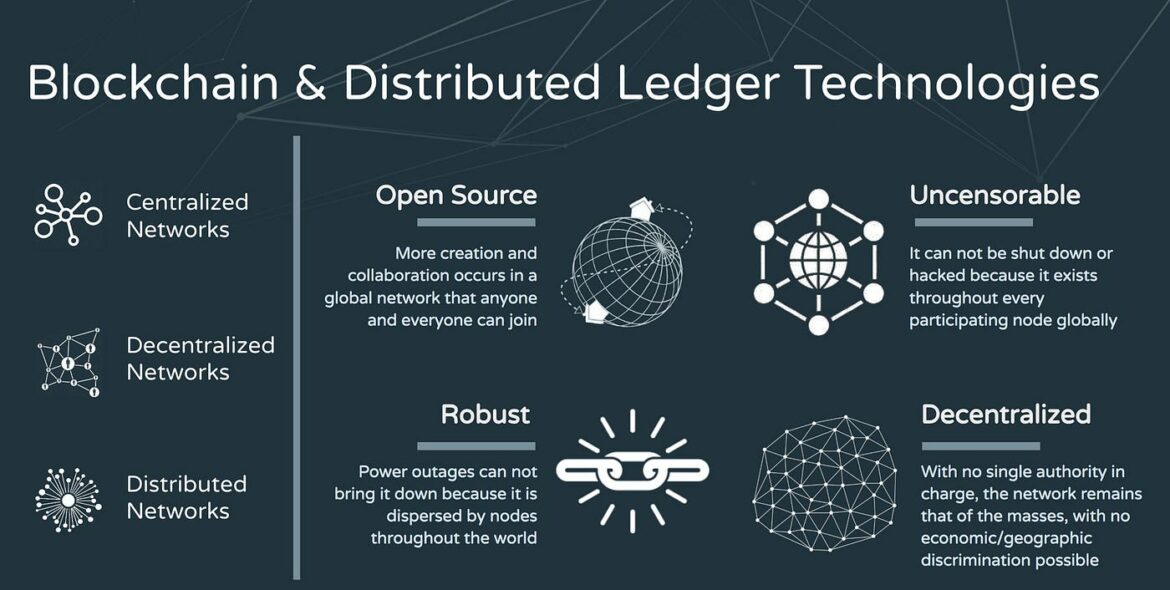# Distributed Ledger Technology (DLT)
Distributed ledger technology (DLT) is a type of digital record-keeping system, typically using cryptography to store data securely and facilitate secure transactions between multiple parties. It is the backbone behind many modern blockchain technologies including cryptocurrencies such as Bitcoin and Ethereum. DLTs are decentralized, meaning that no single entity controls them; instead they are managed by a distributed network of computers or nodes across the world which can communicate with each other to reach consensus on how the ledger should be updated. This means that all users have access to accurate information at any given time, making it difficult for malicious actors to tamper with records or commit fraud in order to manipulate financial systems and markets.
At its simplest level, DLTs allow for peer-to-peer transfers without an intermediary like banks or credit card companies verifying the transaction details. Data stored within these ledgers cannot be modified easily since it would require agreement from every node in the network before changes take effect – this makes them much more secure than traditional databases which rely on one central server where hackers could potentially gain access through a single point of entry. Additionally, because there is no need for third party intermediaries when transferring funds between two individuals via DLT networks, transactions tend to be faster and cheaper than those made through conventional methods such as bank wires or payment cards – thus creating new opportunities for businesses looking to reduce costs associated with payments processing fees charged by these institutions while still ensuring security standards remain high enough so customers feel safe sending money online over their platform(s).
In addition to providing improved efficiency compared against existing legacy infrastructures used today by banks & financial institutions worldwide; another major benefit of utilizing distributed ledgers comes from their ability not only track ownership rights but also enforce rules related thereto automatically without relying upon any external legal body’s jurisdiction enforcement mechanisms – this feature provides immense potential when considering applications outside FinTech sector (such as property registration processes etc.).
In summary: Distributed Ledger Technology offers numerous advantages over current banking infrastructure due its decentralization nature — allowing peers participating in P2P exchanges/transactions fast execution times & low cost operations along with greater transparency & enhanced trustworthiness around asset transfer activities among others features mentioned above


